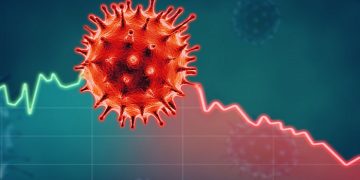WILLEMSTAD, THE HAGUE – The coronavirus has virtually shut down public life in the Caribbean islands of the kingdom. One person died here in Curaçao. Thousands of Dutch people who are here on vacation have returned to the Netherlands.
In Curaçao, with 160 thousand people the largest island and with Aruba and Sint Maarten one of the autonomous countries within the kingdom, a 68-year-old Dutchman, a Brabander who was on vacation, died last week Wednesday morning. His Dutch wife is also ill and is being quarantined in an unknown place.
To date, no infections have been detected on the three islands that are known as special municipalities in the Netherlands (Bonaire, St. Eustatius and Saba). Aruba now has eight people who have been diagnosed with the coronavirus, including a general practitioner. There is one infected person on Sint Maarten.
SUPPORT FROM THE NETHERLANDS
Representatives of the islands held a “four-country meeting” with Minister Raymond Knops of Kingdom Relations about the crisis. The so-called Kingdom Council of Ministers will met in The Hague last Friday. The islands’ focus is on possible short-term medical support from the Netherlands and financial and economic aid, perhaps through flexible loans.
“We are thinking of a little more room on the budget, or additional funds,” said Eugene Rhuggenaath, the Prime Minister of Curaçao, about the situation. Curaçao has been dealing with economic contraction for years. In 2019, the country decided to fully invest in tourism, the only growing sector at the time. But that is exactly where the heaviest blows come.
BORDERS CLOSED
The island, like the five others, has closed its borders to basically all passenger traffic by ships and planes. Freight transport is of course welcome.
LIMITED CAPACITY
For all six Caribbean islands, the medical capacity to deal with the corona crisis is quite limited. Curaçao, for example, currently has seven intensive care units and sixteen respirators. Sint Maarten has already made a request to the Netherlands to make extra respiratory equipment available.
In order not to overload medical facilities, an approach similar to that in the Netherlands has been chosen on all islands. The population is informed via social media, radio and TV about the need for good hygiene and social distancing. Almost all events have been canceled. Restaurants like in Curaçao may only open their doors to customers who want a takeaway.
As a result of all measures, the number of companies and businesses that can no longer pay staff in full is increasing rapidly. The governments of the three autonomous islands are in serious consultation about this with employers and union representatives. The government of Curaçao hopes to announce today, after consultation with the Netherlands, what financial-economic measures it will take.


















